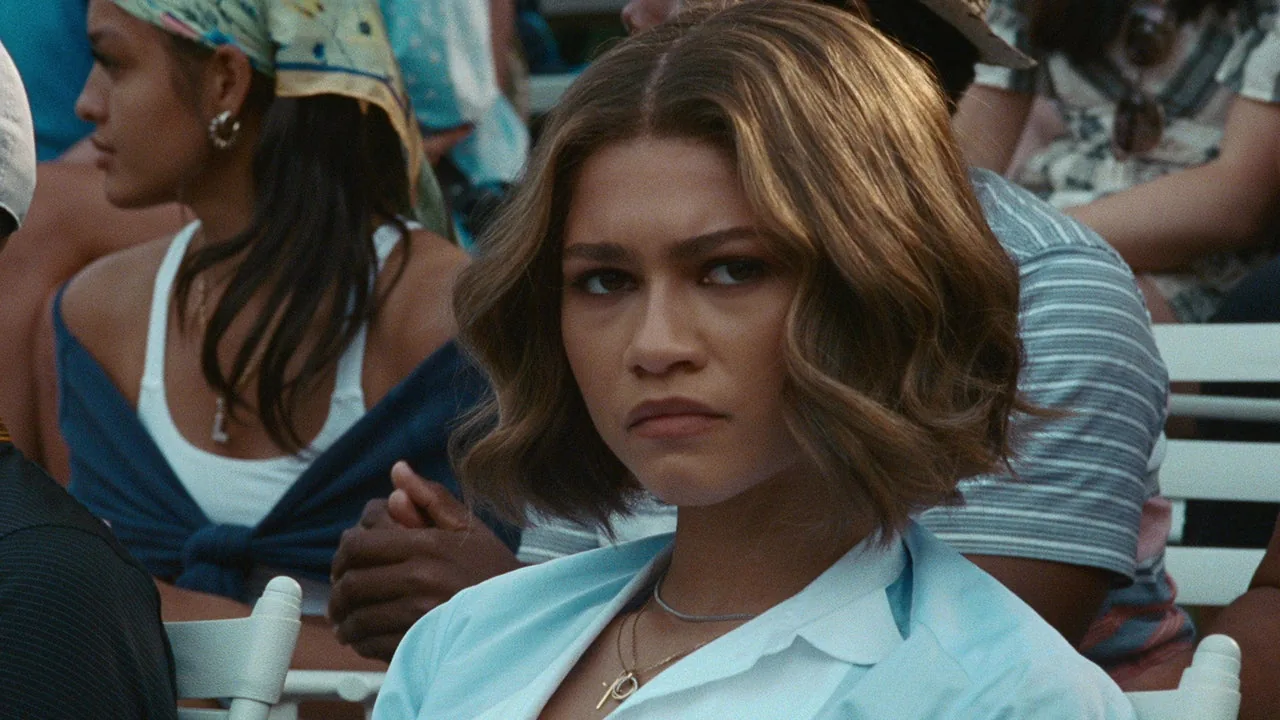Challengers (2024)
Directed by Luca Guadagnino
Challengers by Luca Guadagnino reimagines tennis as an intense relationship played out over a thrilling ATP Tour Challenger final, featuring Mark Faist and Josh O’Connor as competitors and Zendaya as a former tennis star. The film intertwines personal and professional rivalry with a narrative that dissects their complicated relationships through cinematic techniques that blend eroticism with the aesthetics of sports, all underpinned by an evocative soundtrack by Trent Reznor and Atticus Ross.
“You don’t know what tennis is. It’s a relationship. We went somewhere really beautiful together.”
Tennis as a relationship may sound like one of those (beautiful) Rolex commercials for Slam tournaments, but it is actually one of the most significant lines from Luca Guadagnino‘s latest film, Challengers. In tennis, winning involves breaking the balance of the exchange and preventing the opponent from reaching the ball, pushing it behind them. However, its undeniable charm lies in the intensity and duration of the exchange itself, that is, the relationship. This relationship stretches and pulls until it almost breaks, as if the two sides of the exchange are bound by a relationship destined to grow according to a kinesthetic paradigm, where each learns and grows through the movement co-produced by the other. Guadagnino explores this path by unfolding his film over the three sets of a tennis match, the final of an ATP Tour Challenger between two athletes far from their glory days and desperately seeking a final boost before the end.
Art Donaldson (Mark Faist) has won almost everything, from Masters 1000 of every kind to Roland Garros, Wimbledon, Australian Open, and is on the brink of the titanic feat of a Career Grand Slam (adding a final Slam, his home’s US Open, to his titles). On the other hand, Patrick Zweig (Josh O’Connor) is a prodigy never committed to strict discipline, stranded at the dawn of his 30s with a ranking that barely reflects his potential (like a Shapovalov, to say). One chases legend, the great closure of the circle, while the other clings to a belated cry for redemption to free himself from regret. Between them, at the center of the stands and the frame, between the two bodies in action and at the center of their lives, their hearts, Zendaya as Tashi Duncan finds space, also a tennis prodigy cut short not by lack of discipline but by an injury, from whose gaze unfolds a narrative in three intertwined times that tells of a triadic relationship of dense and unresolved attraction.
Tashi is protagonist, mistress, and homewrecker, disrupting the idyll of brotherhood between Art and Patrick by turning her dizzying charm on both. Essentially, she is the ball bouncing from one to the other, dictating the pace of the relationship. Unequal, muscular, strategic like a drop shot that breaks the rhythm of backcourt barrages and, to everyone’s relief, unpredictably destined for one side of the court or the other upon hitting the net. If the triangulation can (almost) never express itself as a simultaneous interaction among the three, but instead operates according to the same rules of tennis that alternately force one of the three out of the court, out of the frame of the image, the inevitable reduction to the two terms of a binomial (Tashi-Patrick, Tashi-Art, Art-Patrick) leads Guadagnino into a territory he knows perfectly well, where he can enhance his flair with a touch never so popular as in Challengers. That also means (at least for this writer) never so powerful, successful, confirming that this is indeed the true nature of our era.
Consider how the very close-ups of wet faces and sweat droplets falling in slow motion, then almost frozen in stills, excite, as does the scopophilic tension of Zendaya in a now finally diva-like pose that syntactically, poetically pairs perfectly with the plasticity of the abs, pectorals, and bicep tension of the O’Connor-Faist duo. Almost in pursuit of the greatest synthesis of technical and aesthetic features of Hollywood cinema. But there’s also something more and new concerning the display of tennis. The pirouettes of the camera that floats and wraps around itself dressing the impossible point of view of the flying ball, or when it almost seems to be a bullet as it bursts out of the frame, or when it’s positioned in an impossible contre-plongée under the feet of the two tennis players, apparently in action on a glass platform. In short, Guadagnino reinvents tennis in cinema and endows it with a spectacular aura that will set it as the representative paradigm of the genre (though not strictly a sports film).
The images are electric, the eroticism drenches them without showing sex, and Trent Reznor and Atticus Ross write a soundtrack that is extremely beautiful and functional, which in sinuous adherence to the shining exaltation of bodies transforms tennis courts into acidic tracks for techno-addicts and bedrooms into places to explore the abyss, from ménage à trois to a tantalizing homosexual tear. Art and Patrick love and challenge each other endlessly in the interlock between one’s self-denial and the other’s unregulated genius—cinematic versions of the very American duo Maddy Fisher-Andy Roddick—even when the love for tennis has long been consumed and nothing remains but to move forward, exhausted by Tashi’s manipulation. And then, alongside the electric and erotic quality of the images, there is that which stirs up torment and astonishes for how much love it manages to speak and make felt. Bringing really both characters and audience “somewhere really beautiful together.” As only great cinema can do.
Andrea Giangaspero
Birdmen Magazine, April 24, 2024





